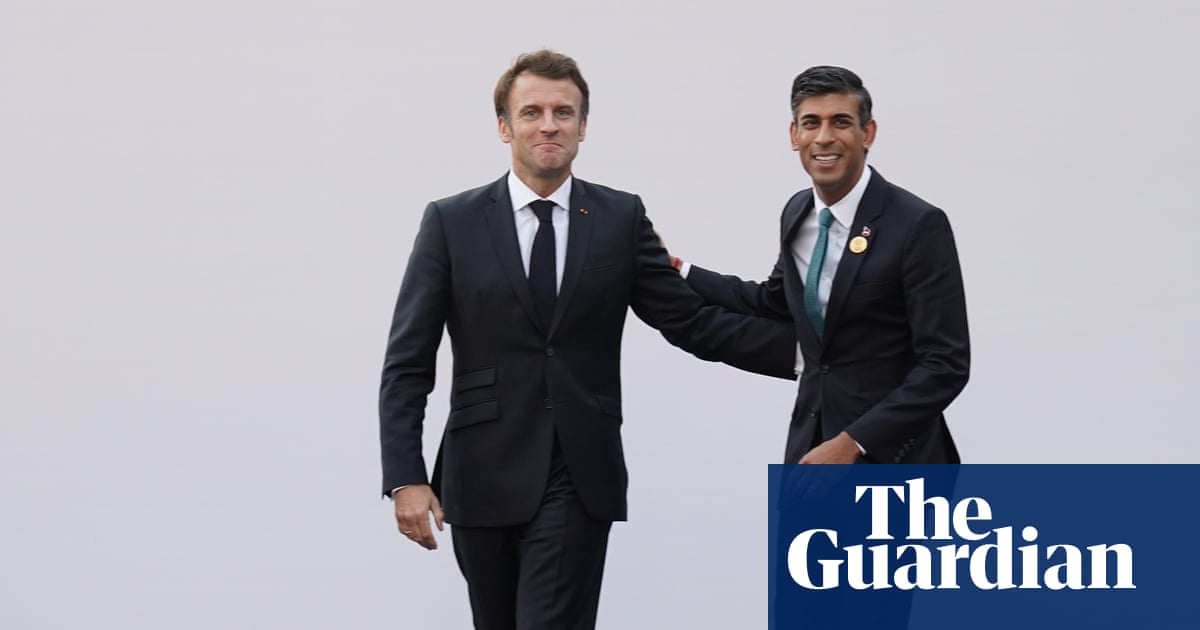
The UK and France are working “at pace” on a new plan to put an end to people attempting to cross the Channel in small boats, a Home Office minister has said, as tensions rise over the British government’s approach to the unfolding crisis.
Following talks with officials in Paris, Chris Philp, minister for immigration compliance, conceded the French were doing a “great deal of work” and had intercepted more than 1,000 people attempting to reach England this year after days of loaded statements from the two nations.
But Philp’s remarks were light on detail on what the “new operational plan” would involve, although he said if it was successful in making the Channel route unviable then “migrants will have no reason at all to come to France in the first place”.
His statement is unlikely to assuage those who have accused UK government in recent days of having an “increasingly chaotic” approach.
On Monday, the RAF flew a transport plane around the Channel at about 1,500 feet. The purpose and outcome of the flight remains unclear but followed a request for military assistance from the home secretary, Priti Patel, to the Ministry of Defence.
In a statement to camera, Philp said: “We had a very constructive meeting with our French colleagues in Paris this morning.
“We have reaffirmed our unshakeable shared commitment to making sure this route of crossing the channel is made unviable.
“It is facilitated by ruthless criminal gangs, it puts lives at risk and it is totally unnecessary.
“We have worked on a joint operational plan, a revised, a new operational plan, with the objective in mind of completely cutting this route. We’re going to work at pace in the coming days to make that plan a reality.”
Philp said the French had committed to appointing a commander to take responsibility for combating Channel crossings, in a move that mirrors the UK government’s instalment of the former Royal Marine Dan O’Mahoney as “clandestine Channel threat commander”.
“The French authorities are doing a great deal of work, they’ve intercepted well over a thousand people so far this year, but the sheer numbers crossing the Channel are completely acceptable – unacceptable to the French government and unacceptable to the UK government,” he said.
“So it’s quite clear more needs to be done and that is exactly what this new comprehensive action plan that we are working on will aim to do.
“And if we can make this route unviable, which we are determined to do, then migrants will have no reason at all to come to France in the first place.”
He said it would be premature to talk about financial commitments at this stage because the plans were still being developed and finalised.
It was initially reported Philp would be meeting with the French interior minister, Gérald Darmanin, but the Home Office has since insisted he was never due to meet ministers, only officials.
Humanitarian groups and refugee and migration experts have urged the government to consider bolstering or creating safe and legal routes to the UK for asylum seekers, which they argue would reduce the number of people risking their lives at sea to reach the UK.
The government could consider strengthening family reunion rules, providing places for child refugees under the so-called Dubs scheme and developing humanitarian visas that would give people advanced permission to enter the UK to claim asylum.
Boris Johnson was accused on Monday of scapegoating people who are risking their lives by crossing the Channel to seek asylum in the UK and using “inaccurate and inflammatory” language to describe their plight.
And on Tuesday, Natalie Elphicke, the Conservative MP for Dover, distanced herself from rhetoric used by fellow Tories in a letter to the home secretary, in which they referred to “invading migrants” .
A group of 23 Conservative MPs and two peers on Monday wrote to Patel to demand “stronger enforcement” efforts to combat a “surge in illegal immigration” as the number of arrivals in small boats surpassed the 4,100 mark so far in 2020.
Elphicke, whose Dover constituency has witnessed a significant proportion of the arrivals, has been pushing for tougher action and improved support from the French government, describing people “who break into our country”.
But appearing on BBC Radio 4’s Today programme on Tuesday, she refused to condone the language used by her colleagues.
Asked if she would use the term “invading migrants”, she said: “That’s not my letter I didn’t sign it and I do not use the language you refer to. These are illegal entrants – we could and should take action. We are looking to work with France and it’s essential here in Dover we put a stop to these small boat crossings.”












